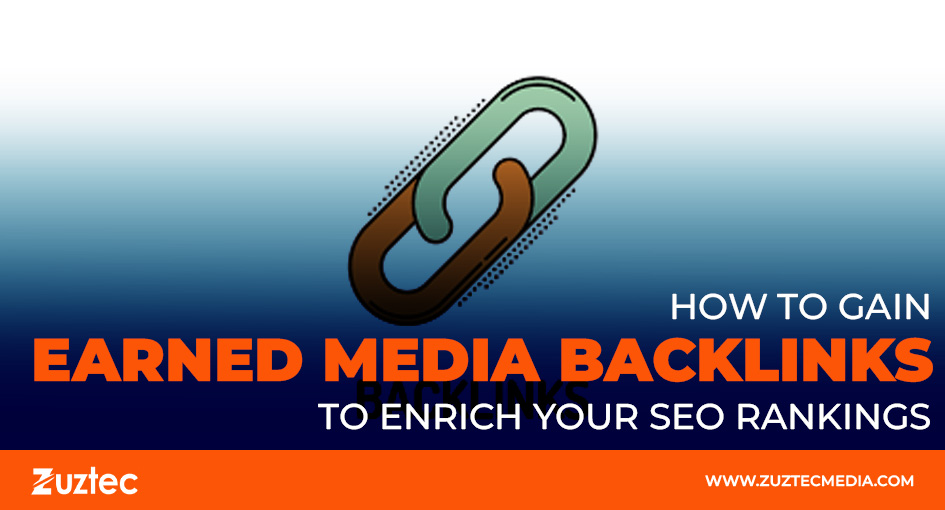
How to Gain Earned Media Backlinks to Enrich Your SEO Rankings
In today’s competitive digital landscape, backlinks remain one of the most important factors in achieving high search engine rankings. However, not all backlinks are created equal. While some are bought or traded, earned media backlinks—those acquired naturally without direct payment—are among the most valuable. They signal to search engines that your content is trustworthy, authoritative, and worth referencing. As a result, they can significantly boost your SEO performance, increase brand credibility, and drive long-term organic traffic.
Backlinks of earned media come from reputable websites, blogs, news outlets, and social platforms that choose to link to your content based on its merit. Unlike paid or self-placed links, these are harder to obtain but much more effective in influencing search engine algorithms. They serve as a digital vote of confidence, indicating that your brand offers real value to users.
The key to earning these high-quality links lies in creating exceptional content, building relationships with industry influencers, and consistently positioning your brand as an expert in its niche. PR strategies, content marketing, and data-driven insights all play vital roles in this process. In many ways, earned backlinks are the holy grail of SEO—difficult to obtain but incredibly powerful when secured. From crafting link-worthy content to leveraging digital PR and social proof, you’ll learn actionable strategies that can transform your backlink profile and amplify your online visibility.
Let’s dive into how to build a natural, ethical, and effective backlink strategy through the power of earned media.
What Are Earned Media Backlinks?
Backlinks earned media are links you receive organically from other websites without paying for placement or requesting them through outreach. They typically come as a result of great content, brand authority, media mentions, viral campaigns, or expert contributions.
These backlinks are considered the most authentic by search engines like Google because they reflect genuine recognition from others in your niche. Unlike paid or sponsored links, earned links carry more weight in ranking algorithms because they are harder to manipulate and signal real trust.
Examples of backlinks include:
- A journalist linking to your blog in a news story
- A high-authority blog referencing your research
- An industry website mentioning your product or service
Why Earned Backlinks Are Crucial for SEO
Google’s algorithm values trust, authority, and relevance. Earned backlinks check all three boxes, making them one of the most powerful ranking factors. Here’s why:
1. High Authority Signals:
Search engines are alerted to the reliability of your website by links from reliable websites.
2. Relevance Boost:
Links from within your industry or niche show contextual relevance, which improves your SERP positioning.
3. Increased Organic Traffic:
Earned backlinks drive referral traffic from the source and improve rankings, increasing visibility.
4. Long-Term Value:
Unlike paid backlinks that may be removed after campaigns end, earned links tend to be permanent and continue to provide value over time.
5. Lower Risk of Penalties:
Earned media links are algorithm-friendly and reduce the chances of getting penalized for black-hat link schemes.
Strategies to Get High-Quality Earned Media Backlinks
Let’s look at the top strategies to earn backlinks that are natural, sustainable, and valuable:
1. Create Link-Worthy Content
Backlinks from earned media are built on top of high-quality content. You must create content that is so valuable that people are compelled to share or refer to it.
Types of content that attract links include
- Original research and data
- Thought leadership articles
- In-depth guides and how-tos
- Interactive tools or calculators
- Infographics and visual assets
2. Leverage Digital PR
Digital PR bridges the gap between content creation and media visibility. By building relationships with journalists, bloggers, and influencers, you can increase the chances of being featured in stories or cited in industry articles.
Key tactics:
- Press releases for noteworthy events
- Media pitches offering expert insights
- Participating in HARO (Help A Reporter Out)
- Offering statistics, quotes, or expert commentary
3. Get Active on Social Media
Social signals indirectly influence backlinks. When your content gets shared widely, it increases visibility and the likelihood that someone will link to it.
Use platforms like LinkedIn, X (formerly Twitter), and niche-specific communities to:
- Share original content
- Join relevant conversations
- Promote blog posts with engaging summaries
- Tag relevant influencers or brands
4. Build Relationships with Influencers and Bloggers
Networking is a powerful backlink strategy. By developing relationships with others in your industry, you can naturally gain backlinks through collaborations and mentions.
Ideas include:
- Co-authoring blog posts or papers
- Getting featured on podcasts
- Offering testimonials in exchange for links
- Being quoted in expert roundups
These relationships often result in long-term backlink opportunities.
Moreover, earning backlinks through media mentions and high-quality content is more sustainable and effective than relying on purchased links or aggressive outreach. It’s about becoming a thought leader, creating real value, and fostering meaningful relationships in your niche.
By prioritizing earned media backlinks, you not only improve your SEO but also strengthen your brand’s reputation across the digital landscape. It takes time, consistency, and strategic effort—but the long-term rewards are well worth it.

